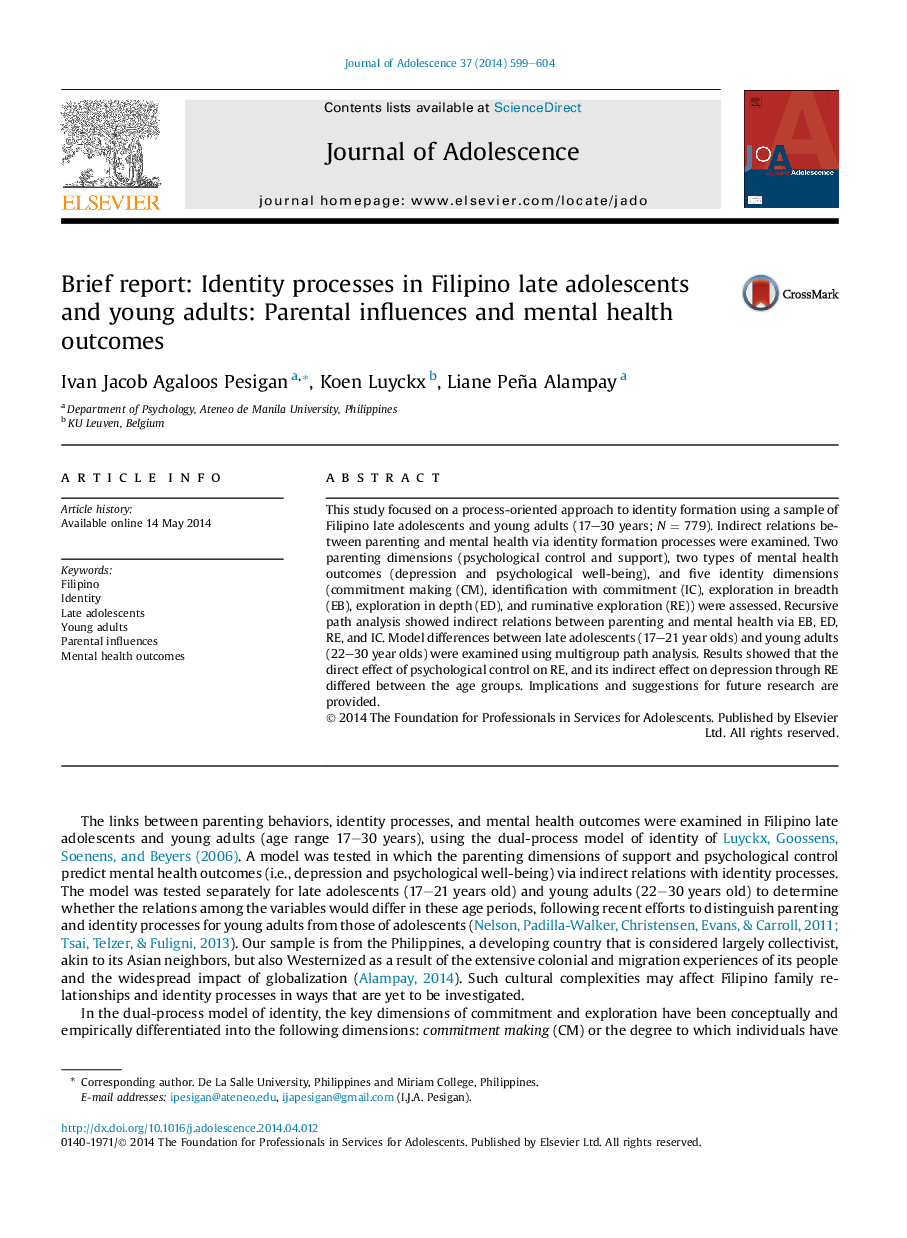| Article ID | Journal | Published Year | Pages | File Type |
|---|---|---|---|---|
| 880706 | Journal of Adolescence | 2014 | 6 Pages |
This study focused on a process-oriented approach to identity formation using a sample of Filipino late adolescents and young adults (17–30 years; N = 779). Indirect relations between parenting and mental health via identity formation processes were examined. Two parenting dimensions (psychological control and support), two types of mental health outcomes (depression and psychological well-being), and five identity dimensions (commitment making (CM), identification with commitment (IC), exploration in breadth (EB), exploration in depth (ED), and ruminative exploration (RE)) were assessed. Recursive path analysis showed indirect relations between parenting and mental health via EB, ED, RE, and IC. Model differences between late adolescents (17–21 year olds) and young adults (22–30 year olds) were examined using multigroup path analysis. Results showed that the direct effect of psychological control on RE, and its indirect effect on depression through RE differed between the age groups. Implications and suggestions for future research are provided.
